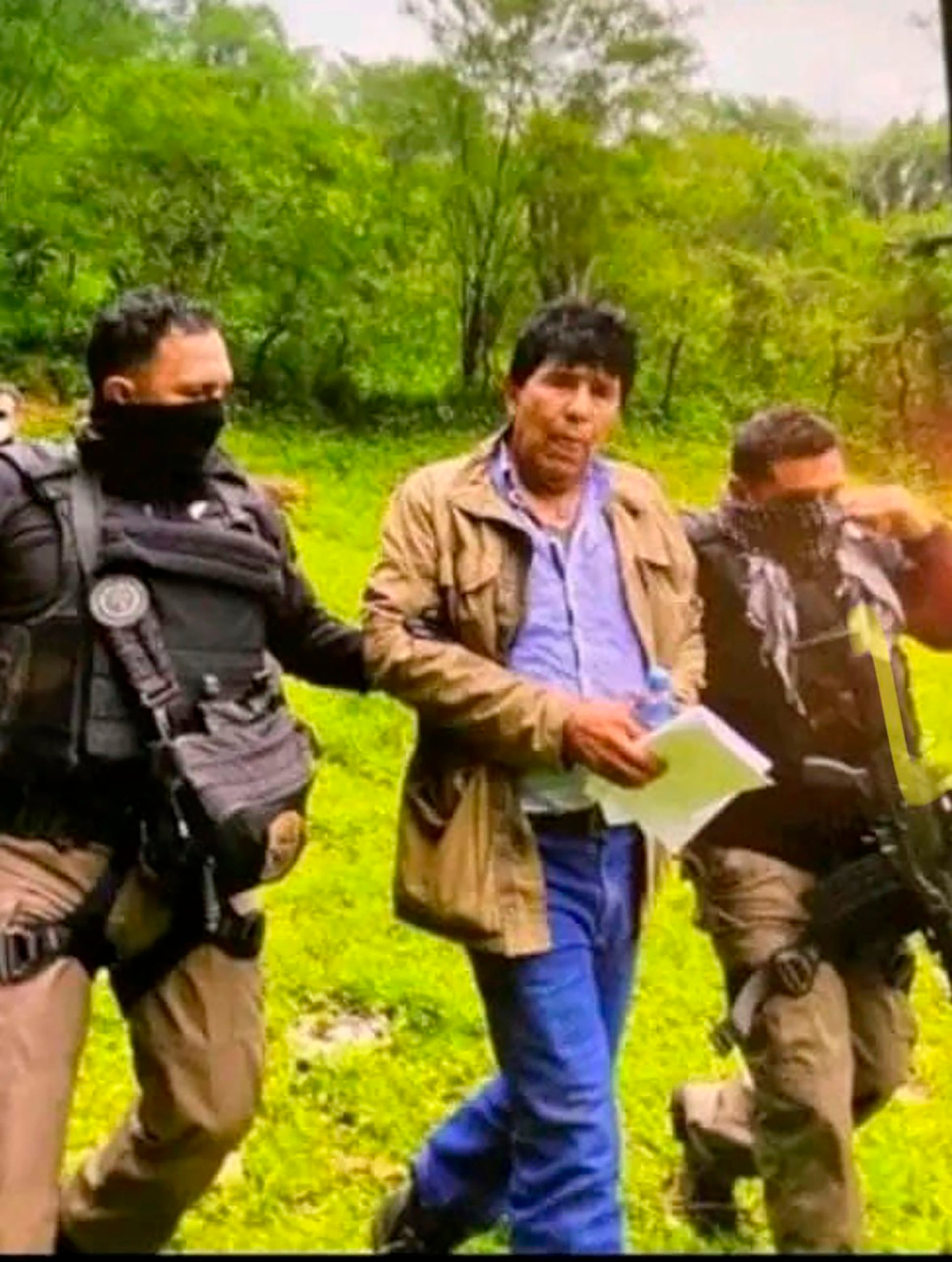Extradition process begins for Mexico drug lord wanted in US
Drug lord Rafael Caro Quintero, captured by Mexican forces, has been notified that a process to extradite him to the United States for the murder of a DEA agent in 1985 and other crimes is beginning

Your support helps us to tell the story
From reproductive rights to climate change to Big Tech, The Independent is on the ground when the story is developing. Whether it's investigating the financials of Elon Musk's pro-Trump PAC or producing our latest documentary, 'The A Word', which shines a light on the American women fighting for reproductive rights, we know how important it is to parse out the facts from the messaging.
At such a critical moment in US history, we need reporters on the ground. Your donation allows us to keep sending journalists to speak to both sides of the story.
The Independent is trusted by Americans across the entire political spectrum. And unlike many other quality news outlets, we choose not to lock Americans out of our reporting and analysis with paywalls. We believe quality journalism should be available to everyone, paid for by those who can afford it.
Your support makes all the difference.Drug lord Rafael Caro Quintero, captured by Mexican forces, was notified this weekend that a process to extradite him to the United States for crimes including the murder of a DEA agent in 1985 has begun.
A Mexican federal official who requested anonymity because he was not authorized to make statements confirmed Sunday to The Associated Press that the notification was made Saturday and took place virtually.
A judge based in a Mexico City informed Caro Quintero, wanted in the United States for the torture and killing of DEA agent Enrique “Kiki” Camarena in 1985, of the accusations against him. He is being held in a high-security prison 50 miles (80 kilometers) west of the capital.
Caro Quintero was one of the FBI’s most wanted fugitives since he was released from a Mexican jail in 2013 on a technicality after being imprisoned for nearly three decades for the murder of Camarena and a Mexican pilot.
Saturday’s notification was the first step in the legal process to extradite him to the United States. Attorney General Merrick Garland said Friday that “immediate extradition” would be sought.
Now the U.S. government has 60 days to file a formal extradition request and provide evidence to support it. Then the judge handling the case will determine whether or not it proceeds.
During this period, Caro Quintero’s lawyers will probably file appeals to try to delay the extradition process.
Extradition processes tend to be lengthy, although their speed depends a lot on the political will of the countries.
Caro Quintero, 69, was captured on Friday in the mountains of his home state of Sinaloa in a joint operation by the Mexican Navy and the Federal Prosecutor’s Office. Fourteen marines who were involved in the operation died when the Black Hawk helicopter they were in crashed. Causes of the incident are still under investigation.
The drug trafficker was one of the founders of the Guadalajara Cartel and, according to the DEA, one of the main suppliers of heroin, cocaine and marijuana to the United States in the 1970s and 1980s.
He blamed Camarena for a raid on a marijuana plantation in 1984. In 1985, Camarena was kidnapped in Guadalajara, allegedly on orders from Caro Quintero. His tortured body was found a month later. Caro Quintero was first captured in Costa Rica in 1985.